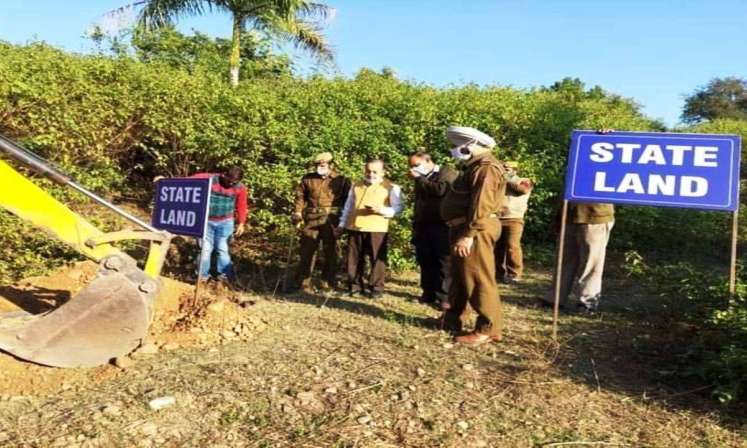
Why land grab scheme of J&K is called Roshni Act and how it happened
25-Nov-2020
Two politically significant developments are happening in Jammu and Kashmir. One, election to the District Development Councils -- first polls since the abrogation of Article 370 and bifurcation of the erstwhile state - in which Gupkar Alliance of the National Conference and the PDP are participating. Second, ahead of the election, the Union Territory administration, under the BJP-led NDA, has released the 868 names in the first list of those who illegally grabbed land in Jammu and Kashmir. The land grab happened over several decades in Jammu and Kashmir but it was validated between 2001 and 2007. Ironically, Jammu and Kashmir was the leader among Indian states to have introduced land reform law in 1950. In 2001, the Farooq Abdullah government brought out a law called the Jammu and Kashmir State Land (Vesting of Ownership to Occupants) Act to regularise the unauthorised occupation of land. Or, it granted legal ownership rights to those who had grabbed the government land in Jammu and Kashmir over several decades. At that time, Farooq Abdullah's National Conference was part of the BJP-led NDA. His son Omar Abdullah was a minister in the Atal Bihari Vajpayee government. The law provided for the collection of a fee for the legalising the illegal act of landgrab. The money thus raised was to be used for up-gradation of power generation in Jammu and Kashmir. The scheme in public view was to provide electricity, roshni in Hindi-Urdu. This is why this Act is called the Roshni Act and the scam Roshni scam.
The embracing arm of Roshni Act
============================
Under the rules, anybody who had previously grabbed a piece of government land could approach the authorities, pay a fee and become the rightful owner of the land. What followed was that those who had not grabbed the land purchased such land from the poor who had erected some structure on the government and became the new legal owners of the land. The 2001 Roshni Act had set the cut-off date for regularising unauthorised land in 1990. This created a batch of claimants who had grabbed the government land after 1990. In 2002, Farooq Abdullah's PDP lost the Assembly election. It was replaced by the Congress-PDP government under Mufti Muhammad Sayeed. The new government pushed the cut-off date from 1990 to 2004. Under the power-sharing formula, Ghulam Nabi Azad of the Congress became chief minister in 2005. Two years later, the Ghulam Nabi Azad government shifted the cut-off date to 2007 to accommodate new claimants and complainants. This was why the National Conference today defended the decision of the Farooq Abdullah government saying, "this law was enacted by Farooq Abdullah government in 2001, but it was amended later by other governments. We are not blaming the other governments"
The unearthing of Roshni scam
==========================
The Jammu and Kashmir government had originally planned to raise Rs 25,000 crore under the Roshni scheme. But it ended up fetching only Rs 76 crore from regularisation of 71,000 acres of land in Jammu and over 4,000 acres of land in Kashmir. The first red flag was raised in 2014, by the Comptroller and Auditor General of India (CAG). A year later, the state vigilance department indicted more than 20 officials in the Roshni scam. But it did not get the sanction from the government for prosecuting those officials. In November 2018, the Jammu and Kashmir High Court restrained the occupants of the land regularised under the Roshni Act from selling or carrying out any transaction over the property.
Road to land recovery
==================
A little later on the same year, the Jammu and Kashmir administration under Governor Satyapal Malik - after the fall of PDP-BJP government in June 2018 - repealed the Roshni Act and ordered a CBI inquiry into the scam. On October 9 this year, the high court held the Roshni Act as unconstitutional and directed the government to make the complete identities of influential persons who grabbed the land regularised under the law public. On November 1, the Jammu and Kashmir government issued an order to cancel all land transfers that took place under the Roshni Act. Now, it has released the first list of beneficiaries, as ordered by the high court though not within the originally stipulated time of one month. The government has set up a committee to recover all the land that was regularised under the Roshni Act. This mammoth task is to be completed in the next six months.
Leave a comment: (Your email will not be published)